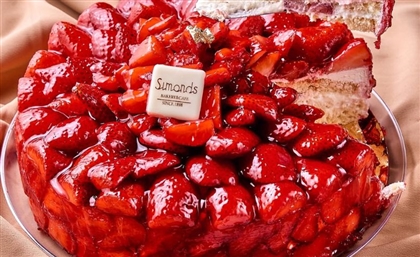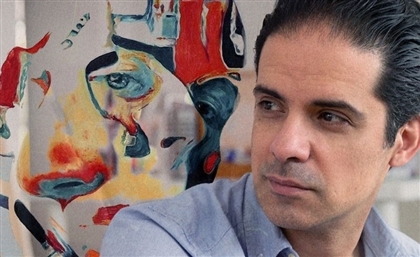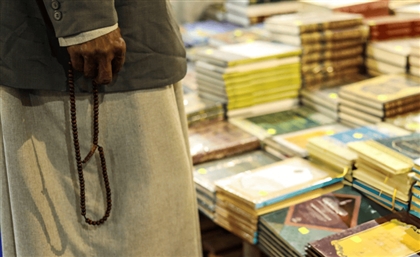Shams West El Balad is a Dinner of Rupture & Return
What Malhas and Mekhtigian accomplished was not merely the revival of particular ingredients or techniques but the assertion of ownership over history itself.
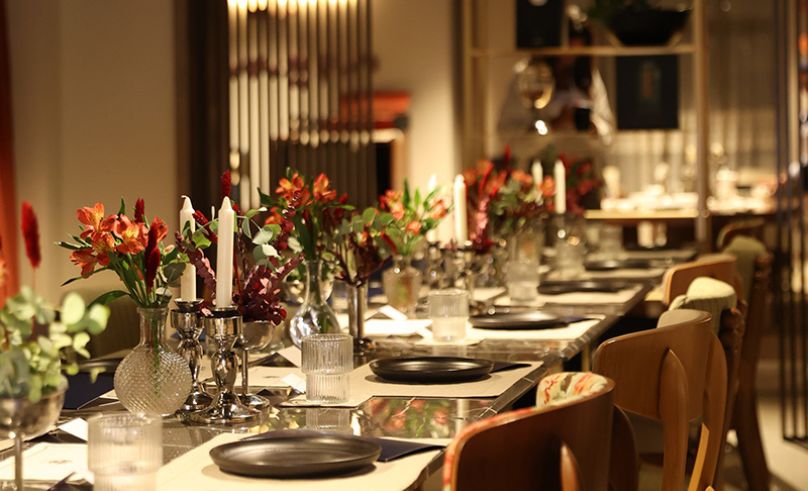
Qais Malhas, a Palestinian-Jordanian chef and restaurateur, has brought his family legacy, Shams El Balad, into Tchai and Tamara Haus, as though the act of setting a table might also set the past in place. He stands beside Hourig Mekhtigian, an Armenian-Egyptian restaurateur with her own history of recipes and rituals. Together they created Shams West El Balad, a Cairo Food Week dinner presented as collaboration, as experiment, as microcosm. It is said to gather centuries at the table, to compress migrations and inheritances into the shape of a meal. Whether a single night can bear that weight is another matter. For now, there are plates, there are stories, and there is the insistence that history can, at least briefly, be tasted.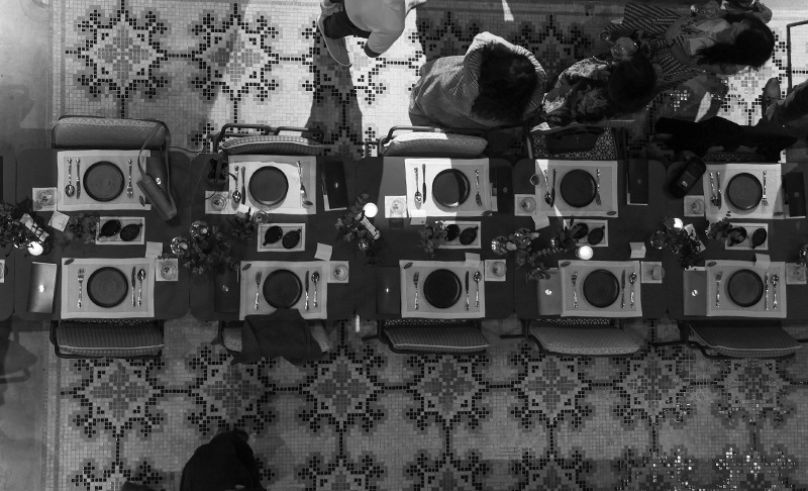 Across a long table set beneath the high ceilings of Tamara Haus, guests drifted in and were met at Tchai’s bar, where Hourig stood with her mother and father (Karim Mekhtigian, founder of Tamara Haus), waiting. Only minutes earlier, she and Qais had been in the kitchen, slicing beetroots, arranging grains of Palestinian wheat once declared extinct and later revived in Jordan. “Since 1948, my family has lived through a rupture of heritage,” Qais explained. “What I want now is to centre that rupture, that trauma, and begin to fill it again with our heritage.”
Across a long table set beneath the high ceilings of Tamara Haus, guests drifted in and were met at Tchai’s bar, where Hourig stood with her mother and father (Karim Mekhtigian, founder of Tamara Haus), waiting. Only minutes earlier, she and Qais had been in the kitchen, slicing beetroots, arranging grains of Palestinian wheat once declared extinct and later revived in Jordan. “Since 1948, my family has lived through a rupture of heritage,” Qais explained. “What I want now is to centre that rupture, that trauma, and begin to fill it again with our heritage.”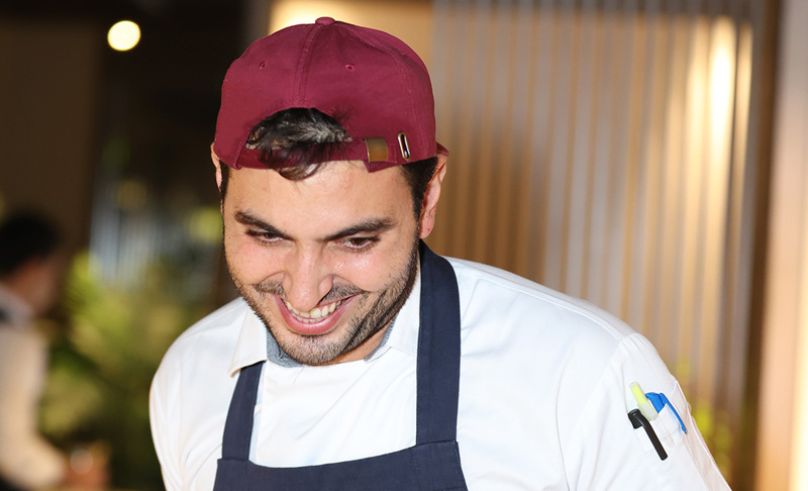 The cocktail hour, devised by Eric Labat’s Amici, lingered. In another context it might have passed without notice. Here it held the chefs and the founders of Cairo Food Week in place long enough to speak. Few knew that Qais’s story had helped shape the festival itself. His insistence on defining a kitchen on his own terms had first moved Hoda El-Sherif to imagine a dialogue around food in Cairo. Hourig’s Tchai comes from the same impulse — a space where her own history could be set down and allowed to flourish. Together, their stories carried the sense that what started across two kitchens was not contained within their walls, but had grown into a movement, tentative and alive, unfolding through Cairo.
The cocktail hour, devised by Eric Labat’s Amici, lingered. In another context it might have passed without notice. Here it held the chefs and the founders of Cairo Food Week in place long enough to speak. Few knew that Qais’s story had helped shape the festival itself. His insistence on defining a kitchen on his own terms had first moved Hoda El-Sherif to imagine a dialogue around food in Cairo. Hourig’s Tchai comes from the same impulse — a space where her own history could be set down and allowed to flourish. Together, their stories carried the sense that what started across two kitchens was not contained within their walls, but had grown into a movement, tentative and alive, unfolding through Cairo.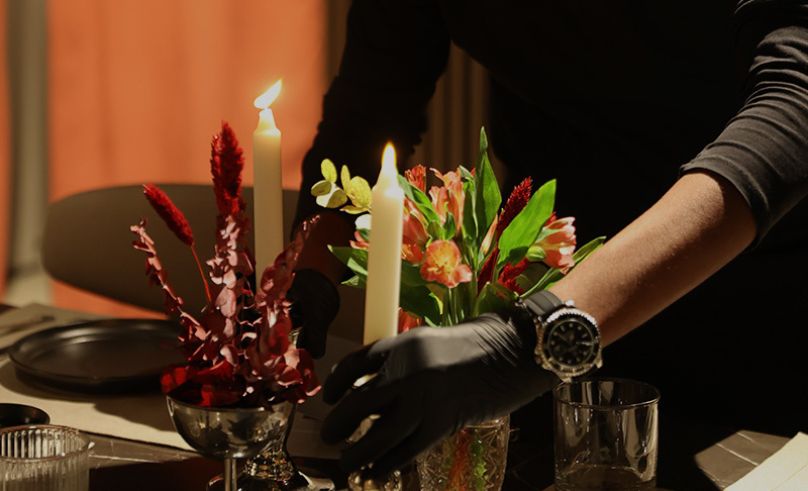 The menu moved like a melody. The first course was chicken fatteh. Garlic yoghurt spread thick, pistachio pepper tursha cutting through, rumi pressing in at the edges. Then came the lamb, karkadeh bleeding red across the plate, the sharpness catching against beetroot and sweet potato, the rice beneath it steadying what it could. Guava hareeseh followed, sweet at first, then drawn back by labaneh and almond. The night ended with lazy cake. Dark chocolate. Hazelnut. Burnt milk.
The menu moved like a melody. The first course was chicken fatteh. Garlic yoghurt spread thick, pistachio pepper tursha cutting through, rumi pressing in at the edges. Then came the lamb, karkadeh bleeding red across the plate, the sharpness catching against beetroot and sweet potato, the rice beneath it steadying what it could. Guava hareeseh followed, sweet at first, then drawn back by labaneh and almond. The night ended with lazy cake. Dark chocolate. Hazelnut. Burnt milk.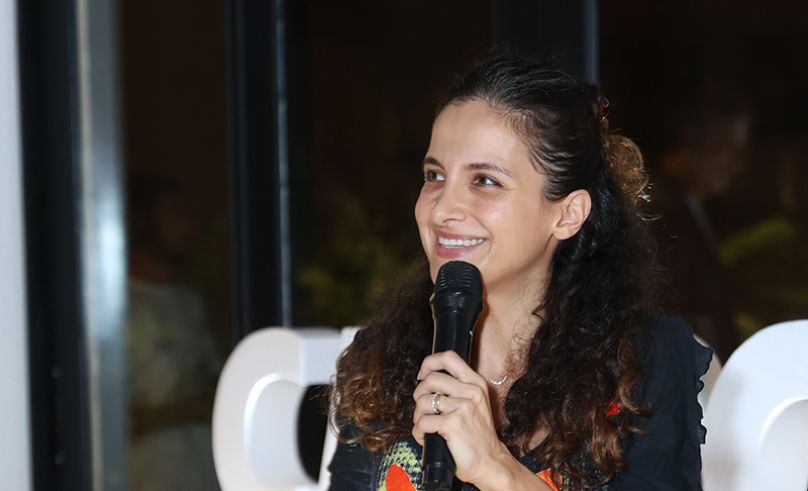 The evening unfolded with the imprint of M squared for Real Estate Development, whose role as cultural partner gave the dinner a resonance beyond its courses. Known as one of Egypt’s leading developers, M squared has built its reputation through building spaces shaped by memory, belonging, and imagination. Their support of Shams West El Balad is an extension of that philosophy; that design and storytelling are inseparable, and that community is built at the intersection of culture and experience. “What you are about to experience reflects a philosophy of immersion,” Karim Malash, CEO of M squared, remarks “The meal, the setting, the ritual — everything has been designed to awaken curiosity and spark emotion.”
The evening unfolded with the imprint of M squared for Real Estate Development, whose role as cultural partner gave the dinner a resonance beyond its courses. Known as one of Egypt’s leading developers, M squared has built its reputation through building spaces shaped by memory, belonging, and imagination. Their support of Shams West El Balad is an extension of that philosophy; that design and storytelling are inseparable, and that community is built at the intersection of culture and experience. “What you are about to experience reflects a philosophy of immersion,” Karim Malash, CEO of M squared, remarks “The meal, the setting, the ritual — everything has been designed to awaken curiosity and spark emotion.”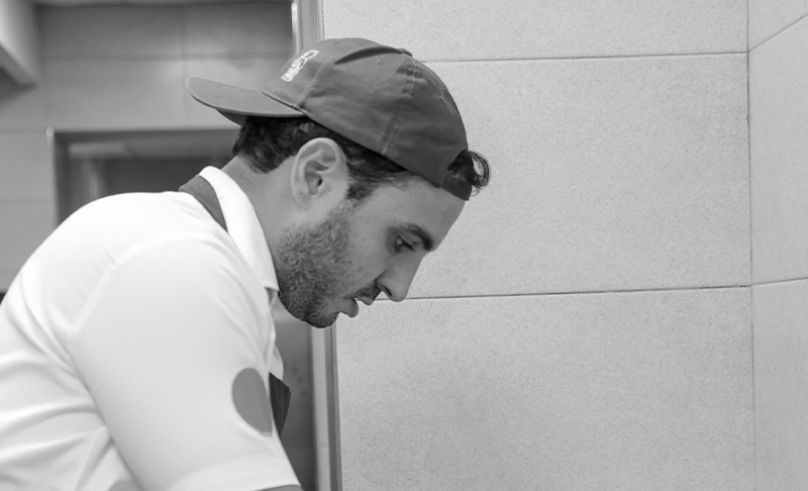 To call Shams West El Balad a dinner would be to understate its ambition. It staged, with unusual clarity, the ways in which food becomes both archive and narrative, at once preserving fragments of a past and re-articulating them in the present. What Malhas and Mekhtigian accomplished was not merely the revival of particular ingredients or techniques but the assertion of ownership over history itself: to cook, in this sense, was to reclaim the authority to narrate one’s own inheritance. Downtown Cairo, long a site of crossings and encounters, offered the appropriate setting — a space in which diasporic memory, interrupted and dispersed, could be gathered, however briefly, at a single table. That the menu was melodic is less important than the fact that it was deliberate, each course a chapter in a larger text about rupture, continuity, and return. Such gestures cannot resolve the traumas that preceded them, but they can render them legible, tasted and remembered.
To call Shams West El Balad a dinner would be to understate its ambition. It staged, with unusual clarity, the ways in which food becomes both archive and narrative, at once preserving fragments of a past and re-articulating them in the present. What Malhas and Mekhtigian accomplished was not merely the revival of particular ingredients or techniques but the assertion of ownership over history itself: to cook, in this sense, was to reclaim the authority to narrate one’s own inheritance. Downtown Cairo, long a site of crossings and encounters, offered the appropriate setting — a space in which diasporic memory, interrupted and dispersed, could be gathered, however briefly, at a single table. That the menu was melodic is less important than the fact that it was deliberate, each course a chapter in a larger text about rupture, continuity, and return. Such gestures cannot resolve the traumas that preceded them, but they can render them legible, tasted and remembered.
- Previous Article At a Masterclass by the World's Best Restaurant
- Next Article Inside Egypt’s Seven UNESCO World Heritage Sites
Trending This Week
-
Feb 12, 2026









